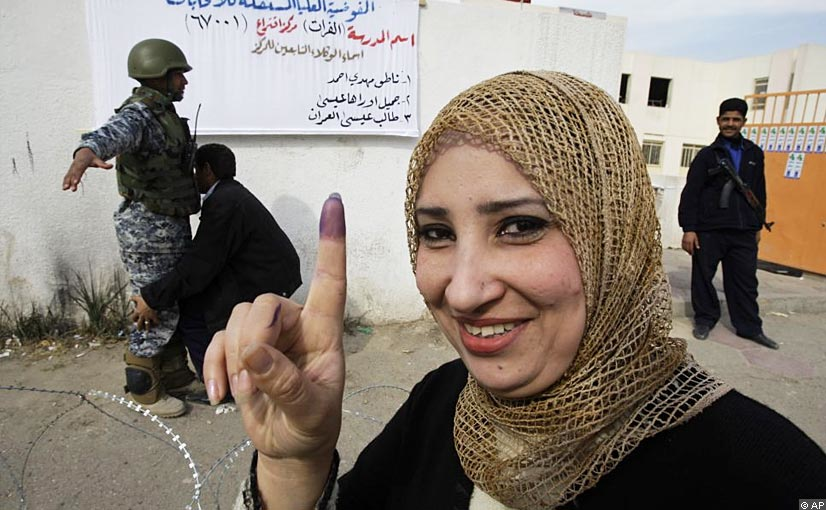Iraq’s Elections: Standing Against Violence
Despite more than 160 people being killed in violent attacks prior to the nation’s elections, more than 13 million Iraqi citizens turned out to vote in Iraq’s first parliamentary election since the withdrawal of US troops. By Mikaela Tenner
Last Wednesday, more than 13 million citizens came out to vote in Iraq’s first parliamentary election since the United States withdrew its troops in 2011. After a day of Iraqis flooding to the polls, Iraqi authorities and the United Nations deemed the elections a success.
The United States invaded Iraq in March of 2003. George W. Bush, president at the time, said that the purpose of the invasion was to “disarm Iraq of weapons of mass destruction, to end Saddam Hussein's support for terrorism, and to free the Iraqi people.” Though President Bush declared the operation a success two months later, U.S. forces remained in Iraq for another 8 years.
The additional eight years spent in Iraq may have been excessive, but this election is something that may have been impossible without international intervention. It is the first election in recent Iraqi history that has been internationally hailed as being fair and democratic. Though the lives lost during this extended invasion of Iraq may never be justifiable, this impartial election gives some hope that there was one positive impact.
Despite the elections being a victory, the three months leading up to the elections were filled with immense amounts of violence, and Iraq experienced its highest death toll since 2004. During the immediate week leading up to the election, more than 160 Iraqis died in violent attacks, and attacks on the day of the election alone left fourteen dead.
It is clear that Iraq as a nation still faces violent opposition from those who do not want it to become a democracy. International intervention may have influenced Iraq to hold elections, but it cannot control the internal opposition to the elections. If Iraq truly does wish to become a more democratic nation, they must stand on their own to control the amount of terrorism within their country.
Regardless of the result, this election should be considered a victory for the Iraqi people. Despite massive amount of violence in the months preceding the elections, more than 60% of Iraq’s 22 million citizens came out to the polls. More than 13 million Iraqis came out to the polls and risked their lives to exercise their right to vote. This feat in itself should be considered a victory of the Iraqi people.
This is a substantially higher rate than is seen in the United States. In the 2012 presidential election, only 57.5% of eligible voters submitted their ballots on Election Day. Although Americans are completely free of violence and threats on Election Day, a higher percentage of Iraqis turned out to vote on their election day.
International bodies have continued to praise Iraq for their democratic nature of their elections. Results will be available in two months, but in the meantime, there is hope that the violence will subside. If Iraqis are willing to risk their lives in order to exercise their right to vote, this is a victory for Iraq and for democracy.

